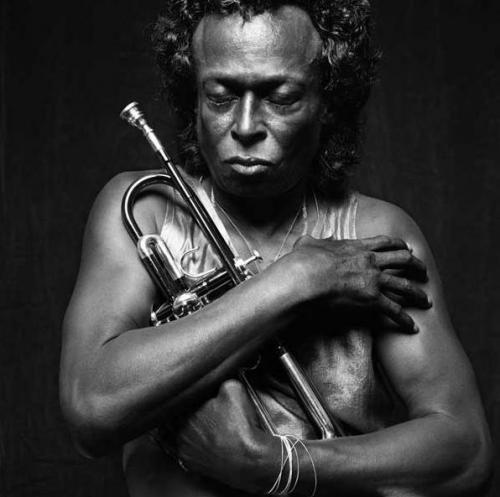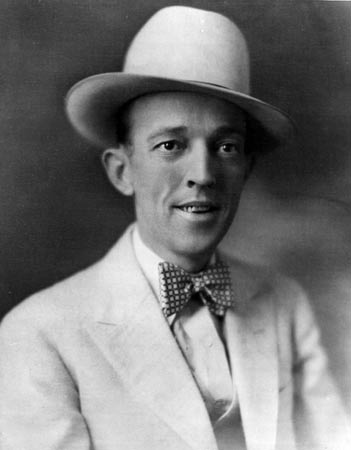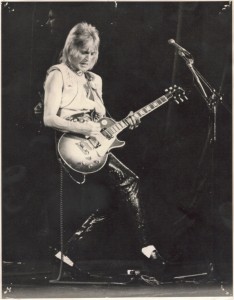
Don’t play what’s there, play what’s not there.
– Miles Davis
Miles Davis is my definition of cool.
– Bob Dylan
I discovered Miles Davis through Prince. Prince talked about Miles and they played together, they played each others songs and I got curious. My first meet with Miles Davis was in the eighties, the years that some hard-core Miles fans consider the decline or the lost years. Not for me, I love 80s Miles Davis, and what I heard made me go back in time. What a world that opened up!
I got to see him in concert, once in 1988. To a young and recent fan it was mind-blowing!
Tutu, Stuttgart 1988:

From Allmusic:
Throughout a professional career lasting 50 years, Miles Davis played the trumpet in a lyrical, introspective, and melodic style, often employing a stemless Harmon mute to make his sound more personal and intimate. But if his approach to his instrument was constant, his approach to jazz was dazzlingly protean. To examine his career is to examine the history of jazz from the mid-’40s to the early ’90s, since he was in the thick of almost every important innovation and stylistic development in the music during that period, and he often led the way in those changes, both with his own performances and recordings and by choosing sidemen and collaborators who forged new directions. It can even be argued that jazz stopped evolving when Davis wasn’t there to push it forward.
– William Ruhlmann
The best Jazz song in music history, So What:
I have choses On The Corner (1972) as today’s album, my favorite Miles record is Kind of Blue, but I thought it would be nice to focus on one of my other favorites. It is a an album that was loathed when it was released. Miles Davis was accused of selling out (just as he was in the 80s). When listening to the album today it is hard to understand what he was selling out to…
At the time, everyone loathed Miles Davis’s On the Corner – even the people who played on it. But now, some of the coolest names in music are proud to name it as a major influence. – Paul Tingen (The Guardian)
other 26 May:
James Charles Rodgers (September 8, 1897 – May 26, 1933), known as Jimmie Rodgers, was an American country singer in the early 20th century known most widely for his rhythmic yodeling. Among the first country music superstars and pioneers, Rodgers was also known as The Singing Brakeman, The Blue Yodeler, and The Father of Country Music.
Mark Lavon “Levon” Helm (May 26, 1940 – April 19, 2012) was an American rock multi-instrumentalist and actor who achieved fame as the drummer and frequent lead and backing vocalist for The Band.Helm was known for his deeply soulful, country-accented voice, and creative drumming style highlighted on many of the Band’s recordings, such as “The Weight”, “Up on Cripple Creek”, “Ophelia” and “The Night They Drove Old Dixie Down”. His 2007 comeback album Dirt Farmer earned the Grammy Award for Best Traditional Folk Album in February 2008, and in November of that year, Rolling Stone magazine ranked him #91 in the list of The 100 Greatest Singers of All Time. In 2010, Electric Dirt, his 2009 follow-up to Dirt Farmer, won the first ever Grammy Award for Best Americana Album, an inaugural category in 2010. In 2011, his live album Ramble at the Ryman was nominated for the Grammy in the same category and won.
Michael “Mick” Ronson (26 May 1946 – 29 April 1993) was an English guitarist, songwriter, multi-instrumentalist, arranger and producer. He is best known for his work with David Bowie, as one of The Spiders from Mars. Ronson was a busy session musician who recorded with artists as diverse as Bowie and Morrissey, as well as engagements as a sideman in touring bands with performers such as Van Morrison.
– Hallgeir
Sources: Wikipedia, Spin Magazine, Allmusic, The Guardian
